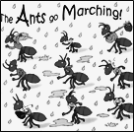题目内容
【题目】A person, when he or she is young, can't read __________ many books.
A. so B. such
C. too D. either
【答案】C
【解析】句意:当一个人年轻时,读的书越多越好。too太,和否定词搭配时,表示肯定的意义,符合句意。so如此,不符合句意。

【题目】Read the following advertisements and answer the questions.
Japanese Restaurant (free parking) Open time Lunch 12:00-2:00 p.m. Dinner 6:00-10:00 p.m. Monday to Saturday a beautiful gift for the first comer
Let's go! | Special Place $5 for each person
Tuesday-Friday 7 nights 12:00-2:00 p.m. 5:30-11:30 p.m. |
McDonald's
$6 Monday to Sunday 10:00 a.m.-9:30 p.m. 70% off for students NO.18 Centre Street London | SEA FAST FOOD CLUB Breakfast by the sea Saturday & Sunday 6:00-9:00 a.m. Milk ·Egg ·Bread
|
【1】According to the four advertisements, you can go to ________ for breakfast on Saturday.
A. Japanese Restaurant
B. Special Place
C. McDonald's
D. SEA FAST FOOD CLUB
【2】Students can pay ________ for a hamburger at McDonald's.
A. $4.2 B. $6
C. $3.6 D. $1.8
【3】If you want to eat at 10:00 at night on Sunday, where can you go?
A. Japanese Restaurant. B. Special Place.
C. SEA FAST FOOD CLUB. D. McDonald's.




